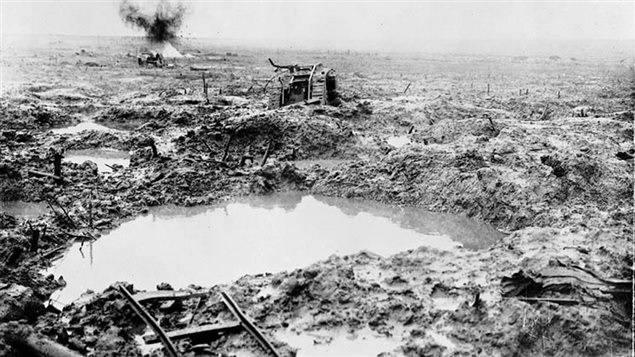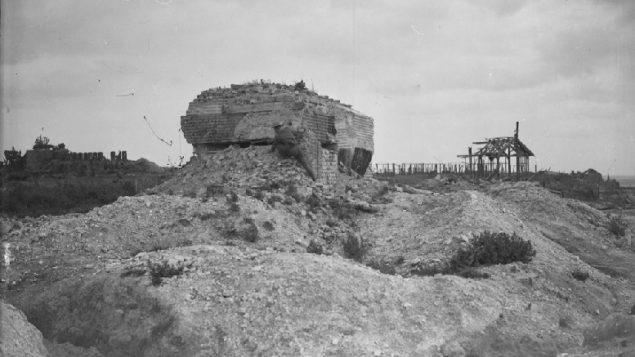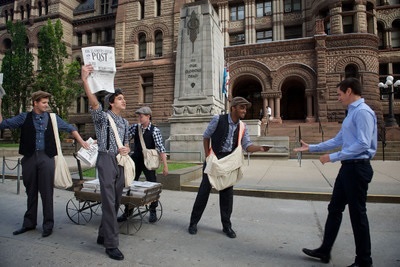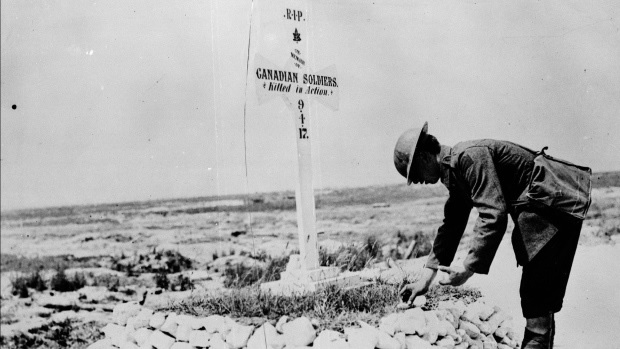Last year was the centenary of many great Canadian victories in the First World War, helping to end the war in 1918.
The attention given to those battles, including a newly erected monument to commemorate the battle of Hill 70 by a privately funded group, has focused Canadians attention on the amazing contribution and sacrifice made in that terrible war.

Brtish tank, mired and hit in the mud of Passchendaele 1917, the remains of a light rail track in the foreground and what appears to be an artillery piece in the background where a shell has just exploded. In these conditions, Canadians prevailed in November 1917
Photo Credit: Library Archives Canada PA-002195
VisitFlanders is the official tourism agency for the region. It noted that the number of Canadians who visited the World War I heritage sites has been growing in recent years and in 2017 visits by Canadians more than doubled to over 15,000 visitors.
Canadians have now become the largest “distance” market for visiting the Flanders region, overtaking Australia,

Remains of a German machine gun bunker after another astounding Canadian victory in taking Hill 70 near Lens. PHOTO Archives Canada Mikan-3397877
In addition to the first major Allied victory in the war at Vimy Ridge, a mostly Canadian victory, other famous victories include the taking of Hill 70 entirely Canadian, Passchendaele in which Canada was a major contributor and eventual victor. Canada’s 100 days, in which Canadians were the recognized Allied shock troops, winning every battle entered and the final, but controversial, Canadian liberation of Mons in the final days of the war.

As part of four years of commemorative activities, and to commemorate the centenary of the start of World War One, VISITFLANDERS, the official tourism agency for Flanders and Brussels, published and distributed the historically-inspired Flanders Fields Post throughout downtown Toronto on August 4, 2014. (CNW Group-VISITFLANDERS)
RCI-Remembrance: the blood-soaked fields of Flanders
The region and the war also holds a special place for Canadians thanks to one of the most famous First World War poems, “In Flanders Fields” written by Canadian surgeon, Col John McCrae, after losing a dear friend to enemy artillery.







For reasons beyond our control, and for an undetermined period of time, our comment section is now closed. However, our social networks remain open to your contributions.